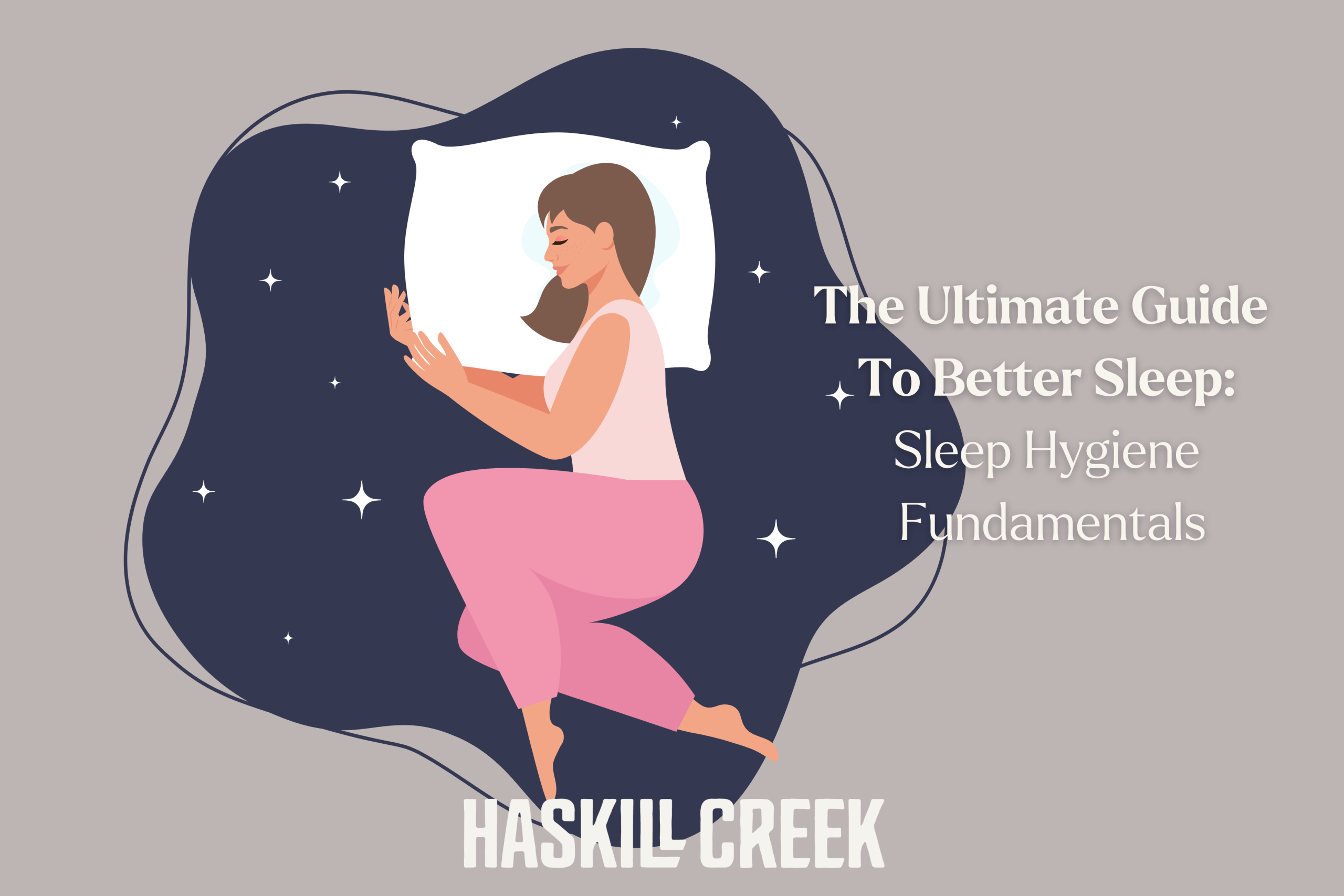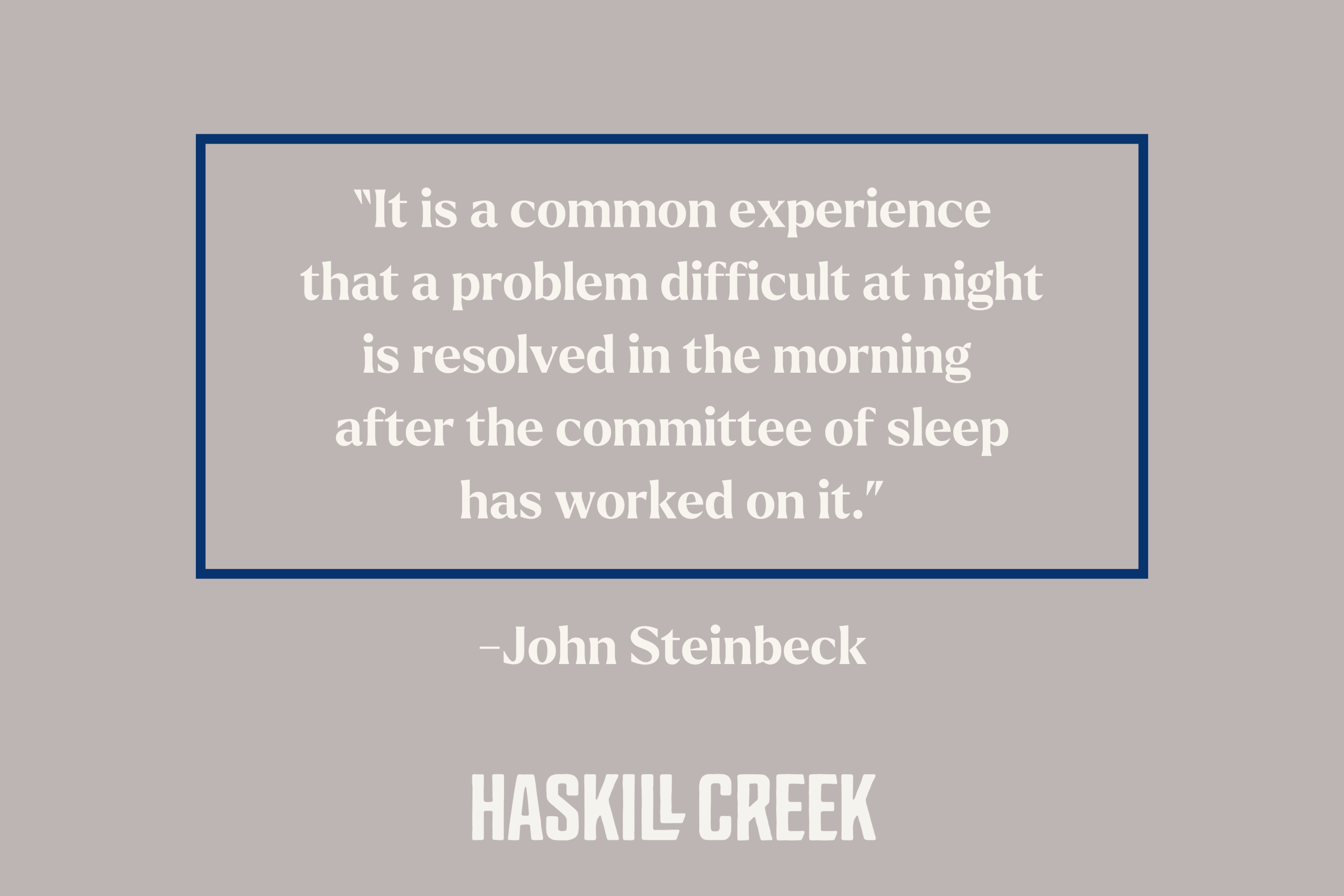Your Bag


Nearly all health professionals will argue that "quality sleep" is the cornerstone to health and wellness. That's whether we're trying to maintain health, optimize health, or attempting to recover it. For much of the population, quality sleep is hard to come by. There are so many things in our modern world that disrupt our sleep potential. But there are things we can do about it.
In this four-part series, we'll discuss the fundamentals of sleep hygiene. What it is exactly and how might we assess our own. In part two, we'll discuss ways to set yourself up for success through the day. The third installment will cover techniques to implement at bedtime. The final installment will cover how to optimize your sleep environment. You'll be a model sleeper in no time.
Throughout the night, we have phases and stages of sleep. This is our sleep architecture which consists of four stages of sleep.
These four stages are divided into:
3 Non- REM stages
1 REM stage
The 3 Non-REM stages include:
Two variations of "light sleep"
The Deep sleep stage
Every stage plays a crucial role in rejuvenation and how we feel the next day. During Light Sleep, brain waves slow and body temperature drops. [1] Deep Sleep is the stage associated with recovery and rejuvenation. During REM, or Rapid-Eye-Movement, the body is mostly paralyzed and this is when vivid dreaming takes place. REM sleep is important for processing memory, synaptic pruning, and mood regulation. [2] Time spent in each phase varies and the number of cycles per night on average is 4 to 6. [3]
Another principle to sleep quality, is our circadian rhythm. Our circadian rhythm is defined as "the physical, mental, and behavioral changes an organism experiences over a 24-hour cycle. Light and dark have the biggest influence on circadian rhythms, but food intake, stress, physical activity, social environment, and temperature also affect them." [4]
It's known as our internal clock, and gets cues from our environment and directly affects our sleep architecture. This is why lifestyle factors and "good sleep hygiene" are so important. Sleep hygiene is defined as a set of behavioral and environmental recommendations intended to promote healthy sleep. [5] How soundly we sleep can be greatly affected by the choices we make throughout the day. But we'll get more into that later.
There are many factors and health conditions that inherently play a role in our quality of sleep. Most adults need between 7-9 hours of sleep per night. Insomnia, either in difficulty in falling asleep or staying asleep is rather common. It's estimated that around 30% of adults have insomnia symptoms. [6] Insomnia can be brought on by hormonal imbalances, mental health conditions, medications, and stress to name a few. You may have insomnia if you:
Have difficulty falling asleep at night, despite feeling tired
Wake up frequently during the night and having trouble going back to sleep
Other conditions that affect sleep quality include neurological conditions, Restless-Legs Syndrome (RLS), chronic health conditions, sleep apnea, and injuries. Getting to the root cause of what is disrupting our sleep can impact our overall health.

Most of us can tell if we've gotten a "good night's sleep". That beautiful feeling of waking up feeling refreshed and ready to take on the day. Just like a Folger's commercial. But if you're somewhere in the middle, or clearly in the red- how do you know what to improve on? Sleep tracking devices can provide helpful feedback. For example, the Oura Ring provides detailed overview of sleep phases and how long it took to doze off into Lala land. With a comprehensive "sleep score" and a "readiness" score- you're able to note how small changes can alter your sleep outcome. Other options are an Apple Watch, Fitbit, or various other sleep specific trackers.
Insomnia may be a concern if you feel like you're battling the sleep gods every night. Trying a natural sleep aid to calm the mind may do the trick. But if the underlying issue is complex, following up with a naturopathic doctor who can assess imbalances can help identify the root of the issue.
If you're wondering if you have Restless Legs Syndrome– With RLS, you have a sensation or an urge to move limbs and legs out of a low-grade discomfort. Some find it due to an iron deficiency and can find relief with supplementation. Magnesium can also provide relief.
If Apnea is a concern, if you or your partner snores- there are at-home sleep tests you can do that will analyze the likelihood of apnea. Following up in a sleep lab may be the next step.
There may be health conditions or life situations effecting sleep quality that one has no control over. Remember to give yourself grace. Developing a pain management strategy and/or relaxation techniques can help ease a weary mind and body. Assessing our average sleep duration, consistency, and overall quality is a good place to know where to begin.
In the next blog, we'll cover the specifics of how to set yourself up for success throughout the day.

Join to get the Haskill Newsletter and be the first to learn about new products, events, and other goings-on at Haskill Creek!
